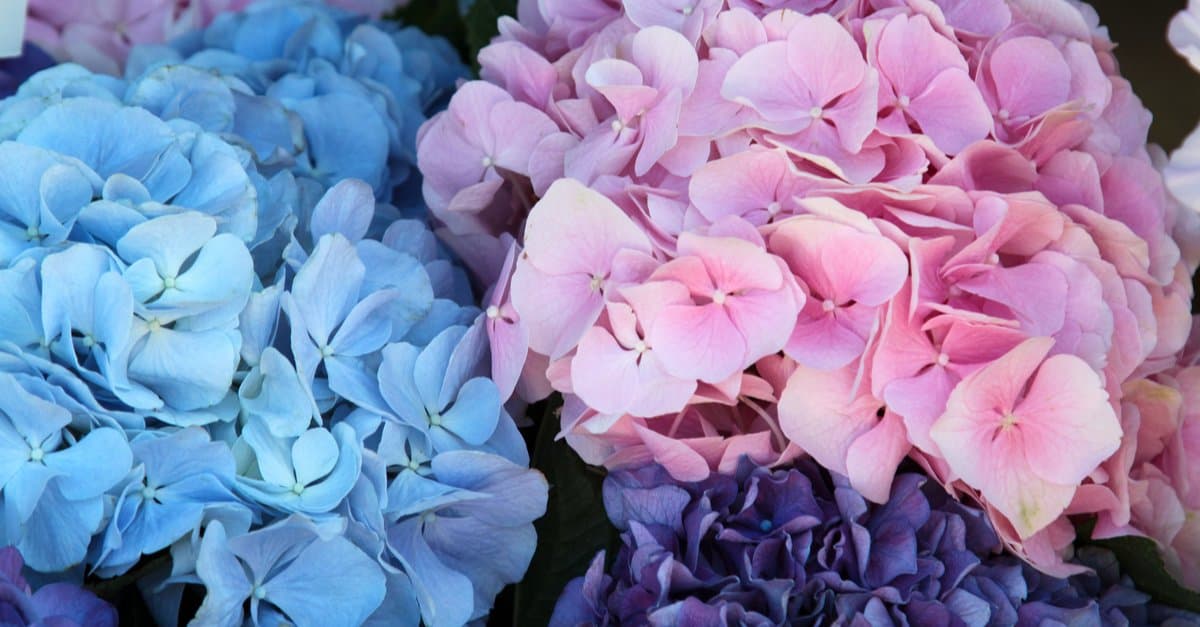Are Hydrangeas Poisonous
Are Hydrangeas Poisonous?
Hydrangeas are beautiful flowering shrubs that are popular in gardens around the world. They come in a variety of colors, including blue, pink, white, and purple. But are hydrangeas poisonous?
The short answer is yes, hydrangeas are poisonous to both humans and animals. All parts of the plant contain a compound called amygdalin, which can break down into cyanide when ingested. Cyanide is a deadly poison that can cause a number of health problems, including nausea, vomiting, diarrhea, difficulty breathing, seizures, and even death.
The amount of hydrangeas that it takes to cause poisoning varies depending on the individual's size and weight. For adults, it is unlikely that eating a few hydrangea leaves or flowers would cause any serious problems. However, young children and pets are more susceptible to poisoning, and even a small amount of hydrangeas can be harmful.
If you think that you or someone you know has ingested hydrangeas, it is important to seek medical attention immediately. There is no specific antidote for cyanide poisoning, but treatment typically involves supportive care, such as activated charcoal, gastric lavage, and oxygen therapy.
In most cases, hydrangea poisoning is not fatal. However, it is important to be aware of the risks and take steps to prevent poisoning from occurring. Here are a few tips:
- Keep hydrangeas out of reach of children and pets.
- Plant hydrangeas in areas where children and pets are not likely to come into contact with them.
- If you have hydrangeas in your garden, supervise children and pets closely when they are playing outside.
- Teach children not to eat any part of a hydrangea plant.
If you have any concerns about hydrangea poisoning, please talk to your doctor or veterinarian.
Main Content
Symptoms of Hydrangea Poisoning
The symptoms of hydrangea poisoning can vary depending on the amount of plant that is ingested and the individual's age and health. In general, the symptoms of poisoning typically appear within 30 minutes to 2 hours after ingestion.
The most common symptoms of hydrangea poisoning include:
- Nausea
- Vomiting
- Diarrhea
- Abdominal pain
- Headache
- Dizziness
- Confusion
- Seizures
- Difficulty breathing
- Coma
In severe cases, hydrangea poisoning can be fatal. If you think that you or someone you know has ingested hydrangeas, it is important to seek medical attention immediately.
Treatment for Hydrangea Poisoning
There is no specific antidote for hydrangea poisoning. Treatment typically involves supportive care, such as activated charcoal, gastric lavage, and oxygen therapy. In some cases, a person may also need to be given intravenous fluids or medications to help manage their symptoms.
The prognosis for hydrangea poisoning is generally good, especially if treatment is sought early. However, in severe cases, poisoning can be fatal.
Prevention of Hydrangea Poisoning
The best way to prevent hydrangea poisoning is to keep hydrangeas out of reach of children and pets. If you have hydrangeas in your garden, plant them in areas where children and pets are not likely to come into contact with them. You should also supervise children and pets closely when they are playing outside.
If you have any concerns about hydrangea poisoning, please talk to your doctor or veterinarian.
Conclusion
Hydrangeas are beautiful flowering shrubs that can add a touch of elegance to any garden. However, it is important to be aware of the risks of hydrangea poisoning. All parts of the plant are poisonous, and even a small amount can be harmful to children and pets. If you have hydrangeas in your garden, take steps to prevent poisoning by keeping them out of reach of children and pets. And if you think that you or someone you know has ingested hydrangeas, seek medical attention immediately.
Hydrangeas are beautiful flowering plants that are often grown in gardens. However, it is important to know that all parts of hydrangeas are poisonous to humans and animals. The toxins in hydrangeas can cause a variety of symptoms, including vomiting, diarrhea, dizziness, and difficulty breathing. In severe cases, hydrangea poisoning can even be fatal.
If you think that you or someone you know may have ingested hydrangea, it is important to seek medical attention immediately. There is no specific antidote for hydrangea poisoning, but treatment typically involves supportive care, such as providing fluids and monitoring the patient's vital signs.
For more information about hydrangea poisoning, please visit the website of the . This website provides a wealth of information about the symptoms, treatment, and prevention of hydrangea poisoning.
FAQ of hydrangea poisonous
- Are hydrangeas poisonous?
Yes, hydrangeas are poisonous to humans and animals. All parts of the plant contain cyanogenic glycosides, which can release cyanide when ingested. Symptoms of hydrangea poisoning can include nausea, vomiting, diarrhea, dizziness, headache, and difficulty breathing. In severe cases, poisoning can lead to coma or death.
- How much hydrangea is poisonous?
The amount of hydrangea that is poisonous varies depending on the individual. Some people may experience symptoms after ingesting a small amount of the plant, while others may be able to tolerate larger doses. However, it is important to note that even small amounts of hydrangea can be poisonous, so it is best to avoid the plant altogether.
- What are the symptoms of hydrangea poisoning?
The symptoms of hydrangea poisoning can vary depending on the amount of the plant that is ingested and the individual's age and health. Some common symptoms include:
- Nausea
- Vomiting
- Diarrhea
- Dizziness
- Headache
- Difficulty breathing
- Confusion
- Seizures
- Coma
- What should I do if I think I have been poisoned by hydrangea?
If you think you or someone you know has been poisoned by hydrangea, it is important to seek medical attention immediately. Do not induce vomiting unless instructed to do so by a healthcare professional. Call the Poison Control Center at 1-800-222-1222 for more information and guidance.
- How can I prevent hydrangea poisoning?
The best way to prevent hydrangea poisoning is to avoid the plant altogether. If you have hydrangeas in your yard, keep them out of reach of children and pets. You should also wash your hands thoroughly after handling hydrangeas.
Image of hydrangea poisonous
- Image 1: A close-up of a hydrangea flower, with the caption "All parts of the hydrangea plant are poisonous, including the flowers, leaves, and stems."

- Image 2: A group of hydrangea plants growing in a garden, with the caption "Keep hydrangeas away from children and pets, as they can be poisonous if ingested."

- Image 3: A dog licking a hydrangea flower, with the caption "If your pet ingests hydrangea, contact your veterinarian immediately."

- Image 4: A person holding a hydrangea flower in their hand, with the caption "If you are unsure whether or not a plant is poisonous, it is best to err on the side of caution and keep it away from children and pets."

- Image 5: A sign warning people that hydrangeas are poisonous, with the caption "Hydrangeas are poisonous to humans and animals. Keep them away from children and pets."

Post a Comment for "Are Hydrangeas Poisonous"